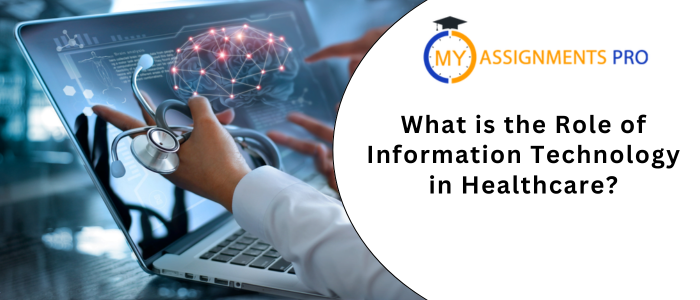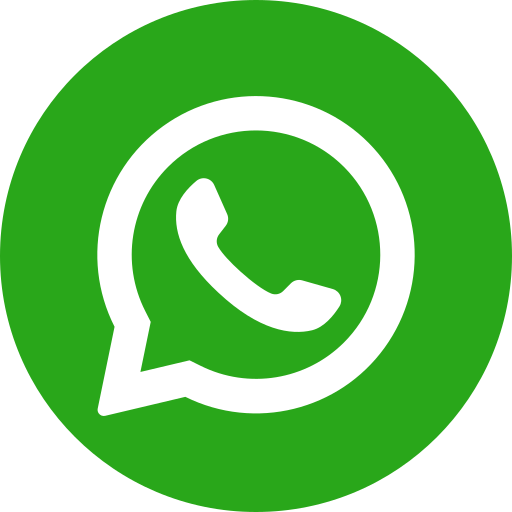
Technological advancement equals better healthcare with smoother processes, which is very much the need of this ever-evolving field of medical sciences. IT is not just a dream of tomorrow, but it is the present and the future of the medical sector as well. Some typical examples of how role of information and communication technology in healthcare changes how physicians interact, diagnose, and treat patients include telemedicine and electronic health records (EHRs). Use of ICT in healthcare ensures accuracy, speed, and connectivity, whether it is hospital management or real-time patient monitoring. This article considers how technology transforms the healthcare sector and why it becomes important for healthcare professionals and students to become aware of these changes. If you, too, revolve around assignments in the same category, those of My Assignments Pro will certainly lend you their double-skilled hands through expert content writing.
Understanding the Role of Information Technology in Healthcare!
IT is central to healthcare management, revolutionizing the delivery, management, and improvement of healthcare services. It entails the use of electronic systems and tools to advance patient care, making processes faster and encouraging coordination among medical professionals. Healthcare patient information is technology used in clinical and administrative roles-from the operation of telemedicine platforms to electronic health records (EHRs).
The biggest benefit of ICT in healthcare is to improve accuracy in diagnosis and treatment. Through real-time access to information and advanced analytics, healthcare professionals can make sound decisions promptly. Additionally, by offering unhindered communication between professionals in different departments or even between locations, health communications technology reduces delays in patient treatment.
Digital dashboards, nurse call systems, and computerized scheduling are some of the most crucial hospital communication technologies for effective hospital coordination. These technologies improve the overall experience of patients, save time, and reduce errors.
The role of information technology in healthcare is also expected to grow as computerized systems move forward, with a key role to play in future advancements. Understanding these ideas is necessary for academic performance and professional preparedness for students pursuing healthcare and health-related studies. Additionally, My Assignments Pro provides expert assistance according to your study requirements if you are in need of assistance with projects or assignments regarding this subject.
5 Uses of ICT in Health: A Practical Overview!
The healthcare field has really changed thanks to the broad adoption of IT, leading to a more teamwork-oriented and patient-centered way of doing things. A big part of this change is because of how information and communication technology in healthcare (ICT) has been woven into everyday medical practices. This has increased the accuracy of diagnoses, facilitated communication, and improved hospital management. This article examines five particular uses of ICT in health care, providing readers with a concise and useful perspective on how technology is changing the provision of medical services.
Electronic Health Records (EHRs): Enhancing Data Accuracy
Electronic health records (EHRs) are the prime example of the role of information technology in healthcare has played in overhauling healthcare. EHRs allow doctors and nurses to input and share test results, treatment recommendations, and patient histories at high velocity with the assurance of the patients' welfare. This innovation boosts the overall effectiveness of IT within healthcare organizations by ensuring precision, reducing paper usage, and avoiding redundant operations. By providing immediate access to essential information for any healthcare professional, this innovation improves and streamlines communications technology in hospitals.
Telemedicine: Bridging Distance with Virtual Care
Telemedicine is another highlight of the 5 applications of ICT in healthcare. It enables specialists and physicians to consult patients via video conferencing, which saves time and provides care to far-flung areas. This ICT application in healthcare has become crucial in dealing with chronic diseases, mental illnesses, and follow-up treatment.
The role of information technology in healthcare here is to overcome geographical barriers and offer accessible, effective, and economical health consultations.
Health Monitoring Devices and Mobile Apps
Wearable devices and mobile phone applications tracking vital signs, physical activity, and medication regimens are now critical parts of contemporary healthcare. Apart from allowing practitioners to track patients remotely, these technologies help patients empower themselves to manage their health.
These developments explain how information technology is ever more becoming an essential factor in healthcare, specifically in managing chronic illnesses and preventive care. These resources are critical to healthcare communication technology since they provide that there are enhanced linkages between physicians and patients.
Hospital Management Systems: Boosting Operational Efficiency
Hospital communication technology helps with administrative effectiveness in addition to clinical treatment. ICT-based hospital management systems make operations related to human resources, billing, scheduling, and inventory control more efficient. This makes workflow smoother, reduces errors, and conserves time.
This image demonstrates how information technology usage in healthcare also improves backend operations, which improves patient satisfaction and improves hospital administration.
Medical Imaging and Diagnostics
Imaging and diagnostics are two fields where role of information technology in healthcare really excels in medicine. Complex equipment such as MRIs, CT scans, and AI-powered diagnostic machines depend on advanced computer software to generate very accurate results and detailed pictures. These technologies ensure that it is much less probable for a physician to misdiagnose and allow diseases to be diagnosed early.
This potent application of technology, which enhances precision and accelerates treatment planning, serves to illustrate just how vital information technology is within the medical community.
Benefits of Information and Communication Technology in Healthcare!
Information technology is totally indispensable in medicine, and it's far greater than task automation. It is a force that considerably enhances the quality, accessibility, and efficacy of medical services. By applying information and communication technology (ICT) to medicine, both the patients and medical staff enjoy better service and optimized operations. Through ICT, patients can be empowered to engage actively in their treatment and access vital information speedily. Let's explore the most important advantages of medical communication technology and why it is important for both students and professionals to know them.
Improved Patient Care and Safety
The role of information technology in healthcare has a huge upside: it makes patients safer and improves the quality of care they get. Doctors and nurses can use things like Electronic Health Records (EHRs) and automated alert systems to avoid errors and make smarter choices. It's super important for medicine to get on board with information technology because it lowers risks, makes sure patients get the right medicine, and helps doctors diagnose illnesses more accurately.
Faster and More Efficient Communication
Medical teams' interactions have been completely transformed by healthcare communication technologies. Healthcare personnel can now connect in real time via hospital intranets, telehealth systems, and secure messaging apps. This rapid access to information speeds up reaction times in emergency conditions, improves teamwork, and reduces delays.
These advancements in hospital communication technology demonstrate how vital information and communication technology are to the healthcare sector's ability to save lives.
Streamlined Administrative Operations
The role of information technology in healthcare has made administrative work in clinics and hospitals more efficient. Appointment scheduling, insurance claim processing, inventory management, and patient record management are all completed more quickly and precisely. Information technology has a function in healthcare that extends beyond clinical settings; it also makes sure that hospital operations are efficient and economical.
Remote Monitoring and Telemedicine Support
The capacity to deliver care remotely via wearable medical technology and telemedicine is another significant advantage. Doctors can consult with patients in remote or underdeveloped locations through chat apps or video calls. Doctors can receive data straight from wearables, including heart rate, oxygen saturation, and blood sugar levels.
The five role of information technology in healthcare that bridge the gap between accessibility and high-quality care are reflected in this application.
Enhanced Data Storage and Analytics
Large volumes of patient data may now be stored more safely and easily thanks to information and communication technologies in the healthcare industry. Big data analytics and cloud-based platforms are used by hospitals to learn more about illness trends, patient behavior, and treatment outcomes.
Better planning, evidence-based procedures, and predictive treatment techniques are all made possible by the role of information technology in healthcare
Increased Patient Engagement
Modern healthcare aims to empower patients as well. Through web portals, mobile apps, and automated reminders, patients can access their health data, monitor their progress, and arrange follow-up appointments. This active involvement not only enhances their immediate experience but also contributes to better long-term health results.
Patients are no longer passive recipients of care but active participants because of ICT in healthcare.
ICT in Healthcare: Real-World Applications
The role of information technology in healthcare has progressed from theory to practical application in the modern digital world. Provision, maintenance, and development of medical care in numerous fields have been revolutionized entirely by the application of information and communication technology in healthcare. ICT within healthcare is being utilized in ways that are reshaping the entire system, ranging from enhancing hospital workflow to accelerating patient care.
We will look at some practical ICT applications in healthcare to support its significance and ongoing advancement.
Electronic Medical Records (EMRs) and Data Management
Electronic medical records, or EMRs, illustrate the practical role of information technology in healthcare in general. They enable physicians, nurses, and other medical professionals to access securely patient data wherever and whenever. It results in faster decision-making, reduces paperwork, and enhances the accuracy of medical records as a whole.
These technologies for hospital communication have enhanced patient outcomes and reduced administrative burden.
Telehealth and Virtual Consultations
Information and Communication Technology (ICT) is now central to healthcare, with the advancement of telehealth being sparked by the increasing need for affordable and convenient healthcare. Physicians are now able to communicate with patients remotely through video calls, messaging systems, and niche mobile applications. This method works particularly well in areas far off from major cities or areas with limited access.
Through instant care without geographical boundaries, this kind of healthcare communication technology strengthens the role of information technology in healthcare.
Clinical Decision Support Systems (CDSS)
ICT-based CDSS solutions are implemented in clinics and hospitals to assist medical practitioners with diagnosis and treatment planning. The systems present evidence-based recommendations based on real-time data, patient information, and medical histories.
With standardized high-quality care and reduced diagnostic errors, this enhances the role of information and communication technology in healthcare.
Smart Devices and Remote Monitoring Tools
These days, wearables and Internet of Things devices are used in modern medicine. Heart-rate trackers, glucose monitors, and smartwatches are used by patients to manage their diseases, and medical professionals keep an eye on their vitals from a distance.
This is an excellent illustration of one of the five applications of ICT in health, demonstrating role of information technology in healthcare promotes preventative and proactive treatment.
Hospital Resource and Workflow Management
In order to effectively manage internal resources, many organizations are now using hospital communication technology solutions, including inventory trackers, computerized scheduling systems, and real-time dashboards. These systems improve personnel and supply allocation, minimize errors, and maximize time management.
These practical uses amply demonstrate the value of role of information technology in healthcare, particularly in raising delivery standards and infrastructure.
E-Prescriptions and Digital Pharmacies
Now that doctors can create electronic prescriptions, pharmacists can quickly receive, process, and produce drugs. This increases the digital convenience of healthcare, guarantees quicker service, and lowers the possibility of human error.
As per our healthcare assignment help, this demonstrates yet another creative application of ICT in healthcare, contributing to the field's larger role in revolutionizing patient services.
Need Help with ICT in Healthcare Assignments?
To succeed academically and professionally in the modern medical environment, one must comprehend the practical uses of ICT in healthcare. It might be difficult to get the structure and analysis just right while examining the role of ICT in healthcare, healthcare communication technology, or the five uses of ICT in health.
My Assignments Pro can help you with it. Our Nursing assignment help professional writers offer excellent, original academic help on all subjects related to healthcare IT. Allow us to help you transform complex ideas into informative, high-scoring articles.
Mitchell
Mitchell is a seasoned Ph.D. scholar with extensive expertise gained through years of rigorous research, publication, and teaching experience. He brings a wealth of knowledge and analytical skills to tackle complex academic challenges. His work is dedicated to delivering innovative solutions, advancing knowledge, and promoting academic excellence. Proficient in research methodology, data analysis, and scholarly writing, Mitchell has contributed to peer-reviewed journals and mentored students to achieve academic success.


